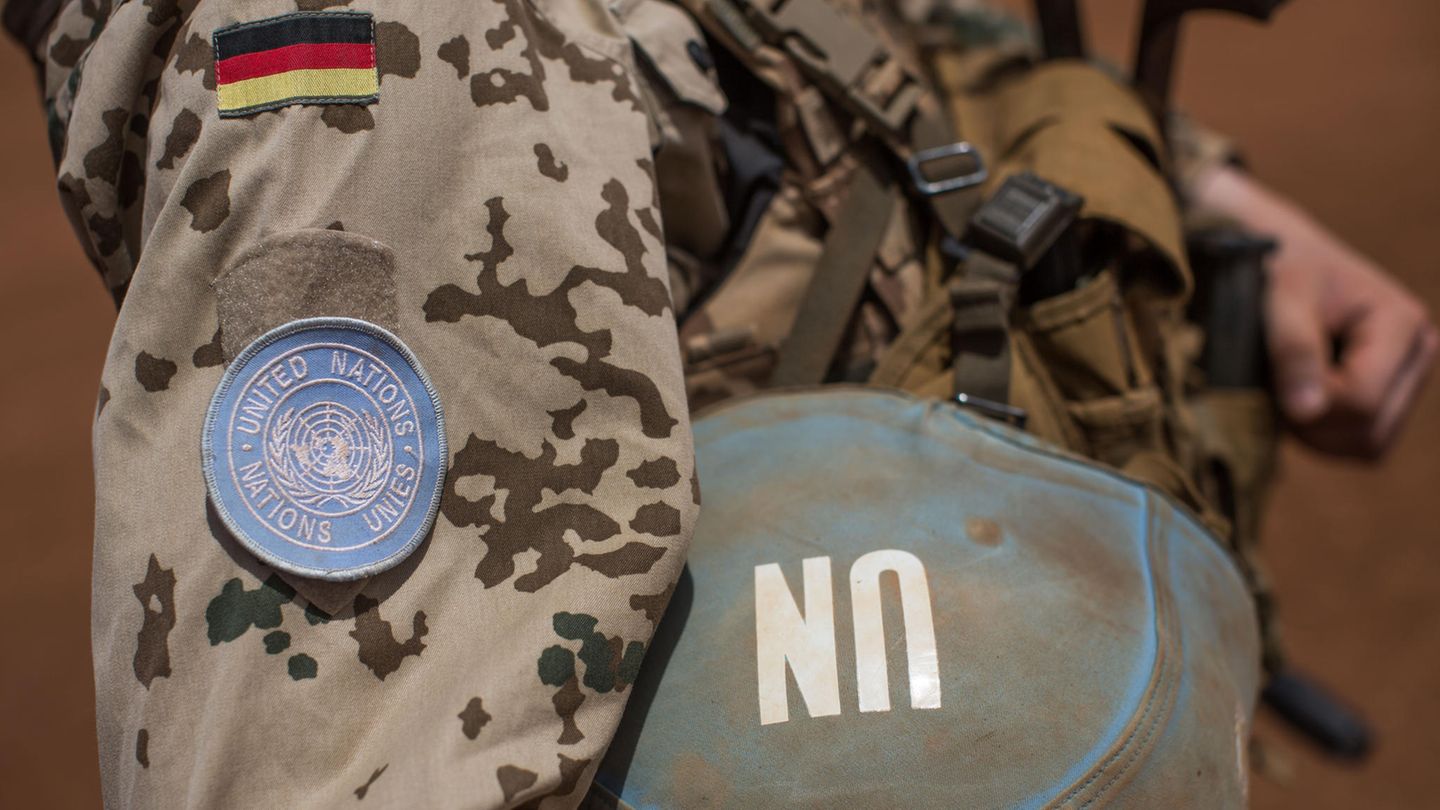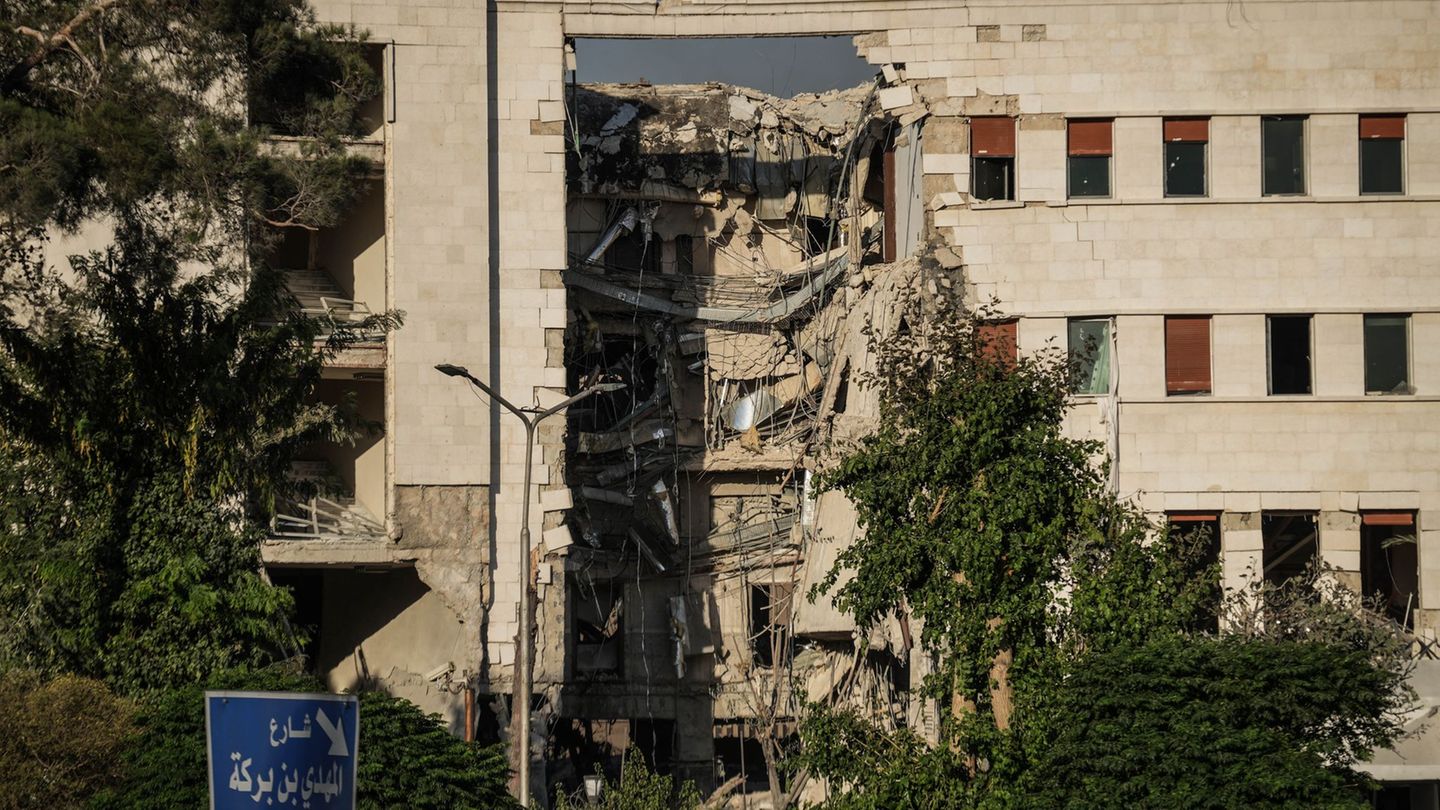Attack one hour after sunrise: A patrol of German blue helmets in Mali is attacked with a car bomb. It is one of the most momentous attacks on the Bundeswehr in the West African crisis state.
In Mali, West Africa, a suicide bomber attacked a patrol of German UN soldiers, injuring a total of at least 13 people. The attacker detonated a car bomb around 6:30 a.m. local time against the vehicles and their crews that were still standing, as the military said on Friday. According to information from the German Press Agency, the Bundeswehr was preparing two medical evacuation flights (“MedEvac”). Twelve injured Germans, some seriously injured, were therefore in a stable condition.
The command and control command of the Bundeswehr informed the chairmen in the Defense Committee in writing that another UN soldier from another nation had been wounded. The suicide attack occurred around 180 kilometers northeast of the city of Gao, near which most of the Bundeswehr soldiers in Mali are stationed. “The soldiers are currently receiving medical treatment, it said. Further details would not be made public until later. Defense Minister Annegret Kramp-Karrenbauer (CDU) wanted to comment on the attack in the early evening.
Bundeswehr soldiers are to support the peace process in Mali
Around 900 German soldiers are currently involved in the UN Minusma mission. The upper limit is 1100 men and women from Germany. The majority of the Bundeswehr soldiers are stationed at Camp Castor on the outskirts of Gao. The mission is intended to support the peace process in Mali. Islamist terrorist groups are active in the country. In 2013, a massive French military operation repulsed their advance on the capital Bamako. Organized crime and cross-border smuggling are also a problem in the region through which migration routes to North Africa and further on to Europe run.
Most recently there were two military coups in Mali. Putschist leader Assimi Goïta was, according to earlier reports, once in Germany for military training. Nobody could look into the future, but it shows how difficult it is to find reliable partners in the country.
Most recently, the question arose as to whether Mali is even moving in the direction of radical Islamism after the latest coup. French President Emmanuel Macron announced a fundamental realignment of the French military presence in the Sahel zone – and an end to the French anti-terrorist operation “Operation Barkhane”. Bilateral military operations with Mali were suspended in order to increase the pressure on the crisis state and the putschists. France – which is actively seeking and attacking Islamist terrorists in the Sahel region – has repeatedly killed its own soldiers.
Again and again attacks on foreign soldiers in Mali
The EU training mission EUTM in Mali has also been the target of attacks. As in February 2019: at 3 a.m. the earth shook. Doors were torn from their anchoring, windows shattered, an alarm was triggered, as it was called at the time. Two allegedly Islamist suicide bombers had raced towards the “Papa 2” main gate, each with several hundred kilograms of explosives on the back of their pickup trucks. One managed to blow himself up – only 300 meters from the German part of the camp. Some of the 150 Bundeswehr soldiers stationed in the camp took up positions to defend the camp. But the Spanish and Malian guards quickly got the situation under control.
Politicians emphasize again and again that chaos can be felt in the Sahel region as far as Europe. The question of what can be achieved there and in what time leaves many pondering. The missions in Mali, which often attract little public interest for weeks or months, are now certainly the most dangerous field of action after the withdrawal of the Bundeswehr from Afghanistan.
“This morning a Minusma temporary base near Ichagara Village in Tarkint Township, Gao Region, was the target of a car bomb attack,” wrote the UN force Minusma on Friday. Because of the large number of casualties, a French military helicopter and a United Nations helicopter had to come to rescue operations. In addition, the rescue helicopter of a civil contract partner was in use.
The Bundestag was dismayed. FDP defense politician Marie-Agnes Strack-Zimmermann wrote on Twitter: “It is too early for further speculation. My thoughts are now exclusively with the soldiers, relatives and helpers.”
Gabriela Heinrich, SPD parliamentary deputy in the Bundestag, described the attack as shocking. “The attack reminds us that every Bundeswehr mission involves high risks for our soldiers. Nevertheless, the UN mission MINUSMA is an important mission to stabilize Mali that has not come to rest in recent years and months,” she said .
Left parliamentary group leader Dietmar Bartsch called on the next Bundestag to fundamentally rethink the Bundeswehr’s foreign missions. The grief must be in the foreground. “But we are called upon to rethink all operations very fundamentally and I hope that the next Bundestag will make very solid, new decisions here.” The left is fundamentally against foreign deployments of the Bundeswehr.
The chairman of the Federal Armed Forces Association, André Wüstner, demanded more protection for the emergency services after the attack. “This attack shows how dangerous the operation in Mali is,” he told the editorial network Germany (RND). Although it is still too early for further analyzes, it should be stated now: “A non-negotiable prerequisite for the continuation of the mission is the guarantee of the rescue chain,” said Wüstner. “And basically I would like to remind you how necessary it is to protect our troops with armed drones.”
David William is a talented author who has made a name for himself in the world of writing. He is a professional author who writes on a wide range of topics, from general interest to opinion news. David is currently working as a writer at 24 hours worlds where he brings his unique perspective and in-depth research to his articles, making them both informative and engaging.




